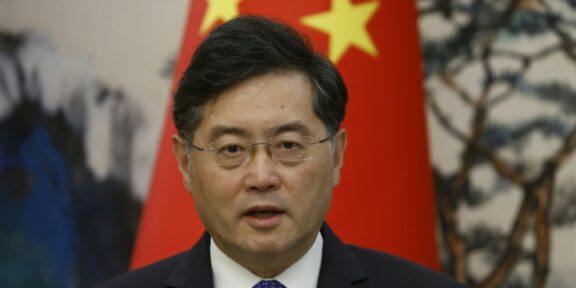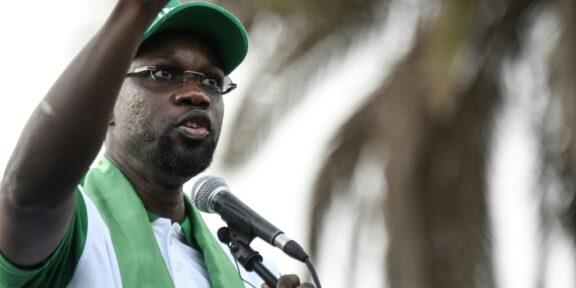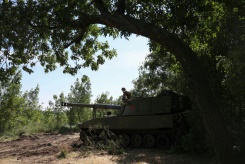
On Ukraine’s eastern front, soldiers welcomed a controversial US decision to send cluster munitions to Kyiv that will give them an “advantage on the battlefield”.
Yuriy, the captain of the crew of an Italian M109L howitzer, pointed out that Russia itself uses the weapons, which are banned in many parts of the world.
“I have already been under cluster munitions bombing several times,” said the commander, who operates under the call sign “Aramis” and sports a goatee.
“The Russians do not hold back,” he said, as the six-man crew waited for orders to take up a new firing position under the cover of some trees not far from the frontline.
“When a cluster munitions shell is flying, you feel it immediately. It opens in the air and the little grenades fly and you do not know where to hide.
“Light armoured vehicles and personnel are put out of action. It’s very effective,” said the 23-year-old officer from Ukraine’s 37th marine brigade.
The US on Friday said it would deliver cluster bombs to Ukraine, despite criticism unexploded submunitions left in the ground can cause civilian deaths long after a conflict is over.
But according to “Aramis”, the risk is minimised by new types of cluster munitions.
With the Soviet models, “it can be that they do not go off… because the ammunition is old”, he said.
But “with the latest ammunition invented in the 2000s, the probability of a shell not going off… is very low”.
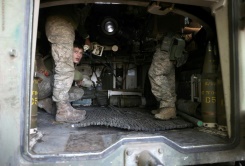
- ‘A good thing’ –
A few kilometres from Yuriy’s unit, the crew of a French AMX-10 RC tank is also awaiting orders by a field among another cluster of trees.
Several dozen of these light tanks were recently sent to Ukraine by France, although Paris has refused to give the exact number.
The vehicles are currently deployed in Ukraine’s counteroffensive to the south and east, which has only advanced slowly against Russia’s defensive lines.
Of little use in direct combat on the frontline due to the weakness of their armour plating, the light tanks are deployed more often as artillery support because of their powerful cannons.
Lieutenant “Cuba”, the deputy commander of a company in the 37th brigade, which uses the AMX-10 RCs, said he was also pleased about the new cluster munitions.
“For Ukrainians, it’s a good thing because the Russians use cluster munitions against us. It is better to have them as well,” he said.
“It would definitely increase and make more effective our offensive operations. And so we would lose fewer men,” he said.
“I know there are a lot of people that say it is not good to give these weapons to Ukraine but I think these people are wrong, because if you refuse to give a victim the possibility to defend himself, then your morals are weak,” he said.
- ‘Expectations are high’ –
“We need heavy weapons, tanks, artillery, cluster munitions, whatever can give us an advantage on the battlefield,” the lieutenant said.
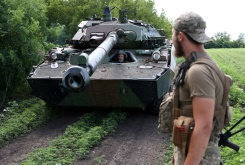
“The main task for us now is to wear out the Russians’ resources in terms of men, in terms of tanks, in terms of artillery, to create a shortage of resources, to arrive at a situation where we can break through in some parts of the front line.”
For Yuriy, the slow pace of the counteroffensive was explained by the fact that “the enemy is really dug in after more than a year” in its positions.
“They’ve built real underground cities. We see them from a drone, or when our men take some Russian positions. There are mines all around and fortifications that are very difficult to capture,” he said.
Responding to the impatience to see more gains expressed by some, including in the West, “Cuba” said he understood that “expectations are high”.
“But if some people think: ‘Ok, we’ve given… 100 tanks or 20 AMX-10s to Ukraine, they will defeat Russia and head for Moscow’… Well, no, it doesn’t work like that.”


